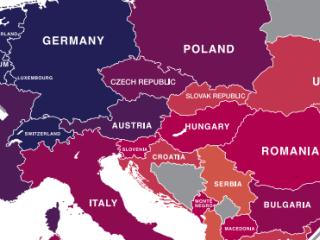
Our social security will mostly depend on our future competitiveness.
Countries which have always been less competitive than Slovenia: Italy, Portugal, Latvia and Montenegro, have now come to the forefront. Slovenia's falling competitiveness ranking is much connected to the bad management of state companies, which has been a burning issue in the country for some time now. Experts say the new coalition contract would also have to pay more attention to the issue.
Losing its economic potential, Slovenia might face a stop to all its privatisation processes. In the case of Telekom Slovenija, instead representing the company to interested buyers, the phases in the selling procedure are constantly being prolonged. Those participating in the process, the Slovenian State Holding (SDH), the potential investors and advisors, are all undoubtedly waiting for the new government to state its position on the matter: to sell or not to sell?
In the meantime Slovenia has once again slid down the competitiveness ranking list. Young people have no access to decent work, the country isn't drawing any talents, the financial market doesn't support the economy – at least not by accessible prices, company management efficiency has practically hit rock bottom, and the country is not open to foreigners.
Slovenia will continue sliding down the competitiveness ranking list for as long as the majority of indebted and poorly managed companies don't get better owners. In the light of the search for strategic owners, the privatization of Telekom is inevitable. If in the end Telekom doesn't get sold, that would be a surprise for analyst Blaž Hribar from NLB Skladi.
Low marks for the labour and financial markets
Compared to other countries Slovenia is also losing its competitiveness because of its public finances and labour market. The most competitive countries are Switzerland, Singapore and the United States of America. While being assessed how developed its financial market is, Slovenia received low marks for the strength of its banks, accessibility to bank loans, and trust in the banking system. Regarding the labour market the report especially criticizes the practice of employing and firing workers, the costs of work and flexibility.
Slovenia earned better marks in the areas of health, education, as well as in infrastructure and technological development.
Maja Derčar, Radio Slovenija;
translated by K. J.
Our social security will mostly depend on our future competitiveness.

































































